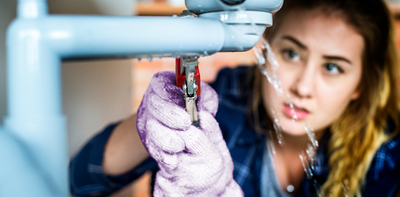
Two May Bank holidays beckon and with them a chance for many Brits to dust off their tools, don their tool belts and catch up on some DIY.
The popularity of home improvements is demonstrated by research from the National Association of Estate Agents (NAEA), published this year, which showed home owners have spent an average of £1,875 each on improving their property over the last five years.
But you should know that choosing to do some DIY, or bigger home improvements, may have implications for your insurance cover.
Do I need to tell my insurer?
If you are doing work such as decorating or replacing fitted units you may not need to inform your home insurance provider. But if the work will affect the rebuilding cost of your home, then you will need to get in touch with your insurer.
Also, you’ll need to inform your insurer in advance if you are planning any major home improvement work to your property, particularly structural changes. Your cover may need to change to reflect any increase in the rebuilding cost.
They’ll also want to be forewarned about any building work that could increase the risk of damage to your home or its contents.
Building work could also increase the value of your contents insurance. So if you’re adding an expensive new kitchen, for example, make sure you are covered.
Will my insurance cover a DIY botch job or accident?
If you decide to try your hand at some home improvements, rather than hiring professionals, perhaps to save money, you could end up footing a bigger bill. Brits pay £34 billion each year to fix their DIY mistakes, according to 2017 research from Local Heroes, a platform which puts customers in touch with nearby tradespeople
Accidents can happen too. According to the Royal Society for the Prevention of Accidents (RoSPA) each year over 200,000 DIY enthusiasts turn up at hospital accident and emergency rooms.
Don’t necessarily expect your policy to pay out after an accident, whether it be making home improvements or otherwise - damage due to DIY or building work are usually covered as an optional add on. So if your foot goes through the ceiling, or you spill paint on the carpet, you’re unlikely to be covered unless you have added accidental damage cover to your policy.
To cover home improvement and DIY work, extended accidental damage insurance will often be necessary.
It all depends on your individual policy. Take the time to read through your policy and check what you are insured for.


